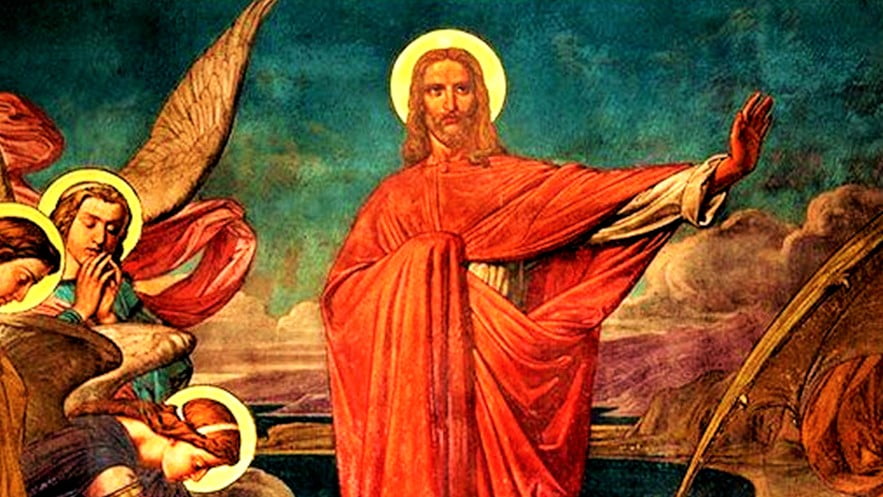POPE FRANCIS ON VICES AND VIRTUES (9):
ENVY AND VAINGLORY

Cycle of Catechesis. Vices and Virtues. 9. Envy and vainglory
Dear brothers and sisters, good morning!
Today we examine two deadly vices that we find in the great lists that the spiritual tradition has left us: envy and vainglory.
Let us start with envy. If we read Holy Scripture (cf. Gen 4), it appears to us as one of the oldest vices: Cain’s hatred of Abel is unleashed when he realizes that his brother’s sacrifices are pleasing to God. Cain was the firstborn of Adam and Eve, he had taken the largest share of his father’s inheritance; yet, it is enough for Abel, the younger brother, to succeed in a small feat, for Cain to become enraged. The face of the envious man is always sad: he’s always looking down, he seems to be continually investigating the ground; but in reality, he sees nothing, because his mind is wrapped up in thoughts full of wickedness. Envy, if unchecked, leads to hatred of the other. Abel would be killed at the hands of Cain, who could not bear his brother’s happiness.
Envy is an evil that has been investigated not only in the Christian sphere: it has attracted the attention of philosophers and wise men of every culture. At its core is a relationship of hate and love: one desires the evil for the other, but secretly desires to be like him. The other is the epiphany of what we would like to be, and what we actually are not. Their good fortune seems to us an injustice: surely, we think to ourselves, we would be much more deserving of their successes or good fortune!
At the root of this vice is a false idea of God: we do not accept that God has his own “math”, different from ours. For example, in Jesus’ parable about the workers called by the master to go into the vineyard at different times of the day, those in the first hour believe they are entitled to a higher wage than those who arrived last; but the master gives everyone the same pay, and says, “‘Am I not allowed to do what I choose with what belongs to me? Or do you begrudge my generosity?’ ” (Mt 20:15). We would like to impose our own selfish logic on God; instead, the logic of God is love. The good things he gives us are meant to be shared. This is why Saint Paul exhorts Christians, “Love one another with brotherly affection; outdo one another in showing honor” (Rm 12:10). Here is the remedy for envy!
And now we come to the second vice we are examining today: vainglory. It goes hand-in-hand with the demon of envy, and together these two vices are characteristic of a person who aspires to be the centre of the world, free to exploit everything and everyone, the object of all praise and love. Vainglory is an inflated and baseless self-esteem. The vainglorious person possesses an unwieldy “I”: they have no empathy and take no notice of the fact that there are other people in the world besides them. Their relationships are always a means to an end, characterized by dominating the other. Their person, their accomplishments, their achievements must be put on display for everyone: they are perpetual beggars for attention. And if at times their qualities are not recognized, they become fiercely angry. Others are unfair, they do not understand, they are not up to it. In his writings, Evagrius Ponticus describes the bitter story of a certain monk struck by vainglory. It happened that, after his first successes in the spiritual life, he already felt that he had made it, so he rushed into the world to receive its praise. But he did not realize that he was only at the beginning of the spiritual path, and that a temptation was lurking that would soon bring him down.
To heal the vainglorious, spiritual teachers do not suggest many remedies. For in the end, the evil of vanity has its remedy in itself: the praise the vainglorious person hoped to reap from the world will soon turn against him or her. And how many people, deluded by a false self-image, have then fallen into sins of which they would soon be ashamed!
The finest instruction for overcoming vainglory can be found in Saint Paul’s testimony. The Apostle always reckoned with a defect that he could never overcome. Three times he asked the Lord to deliver him from that torment, but finally Jesus answered him, “‘My grace is sufficient for you, for my power is made perfect in weakness’”. From that day Paul was set free. And his conclusion should also become ours: “I will all the more gladly boast of my weaknesses, that the power of Christ may rest upon me” (2 Cor 12:9).
Source and copyright: https://www.vatican.va/content/francesco/en/audiences/2024/documents/20240228-udienza-generale.html
© Dicastero per la Comunicazione – Libreria Editrice Vaticana
EMPHASIS MINE.
Stay updated: subscribe by email for free TO OUR NEW WEBSITE catholicsstrivingforholiness.org (PUT YOUR EMAIL IN THE SUBSCRIBE WIDGET).
If you need some resources regarding a particular topic, feel free to use the search WIDGET which has access to thousands of posts, categories and tags on Catholic spirituality.
Cordially inviting you as well to follow www.fb.com/Catholicsstrivingforholiness. and share our posts to help more people in their Christian faith and life.
Thanks and God bless you and your loved ones! Fr. Rolly Arjonillo.